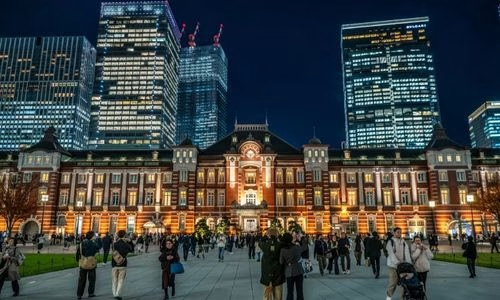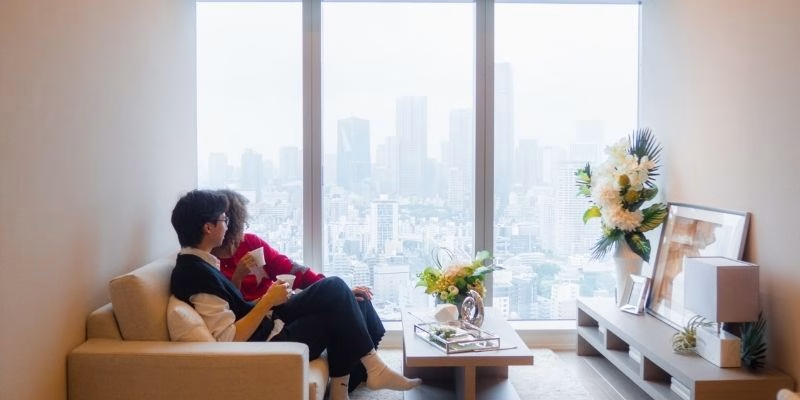Choosing the right place to stay in Tokyo is one of the most important decisions for anyone moving to or visiting Japan’s bustling capital. With Tokyo’s vast neighborhoods offering a wide variety of lifestyles and price points, understanding where to live, how much rent to expect, and how salaries in Japan impact your housing options is crucial.
Why Location Matters When Renting an Apartment in Tokyo
Tokyo is a vast metropolis made up of numerous wards and neighborhoods, each offering distinct lifestyles, amenities, and atmospheres. Whether you’re planning to rent an apartment in Tokyo for a short visit or settle down long-term, selecting the right area that matches your daily routine, commuting preferences, and budget is key to a comfortable living experience.
- Busy city centers: If you enjoy an energetic environment with bustling shopping districts, vibrant nightlife, and cultural hotspots, consider neighborhoods like Shinjuku, Shibuya, or Ginza. These areas are known for their extensive amenities and excellent transportation links, ideal for those who thrive in a lively urban setting.
- Quiet residential areas for families: For those seeking a peaceful atmosphere with ample green spaces and quality schools, wards such as Setagaya and Meguro provide safe, tranquil neighborhoods perfect for families and anyone looking for a calmer lifestyle.
- Affordable neighborhoods for students and young professionals: Areas like Ikebukuro and Kichijoji offer budget-friendly housing options while maintaining convenient access to public transport, trendy cafes, shops, and entertainment venues. These districts are popular among younger residents who value both affordability and vibrancy.
By understanding the unique features of each district, you can confidently choose the best place to stay in Tokyo that suits your lifestyle, work needs, and financial situation.
Where to Stay in Tokyo
Shinjuku
Shinjuku is one of Tokyo’s most famous and busiest districts, renowned for its vibrant nightlife, endless dining options, and one of the world’s largest and busiest train stations. This area truly never sleeps, making it perfect for people who thrive on constant energy and excitement. Whether you want to explore countless bars, enjoy live entertainment, or have quick access to almost any part of Tokyo via Shinjuku Station, this neighborhood delivers on convenience and urban buzz.

Energetic nightlife hub in Shinjuku
Shibuya
Known as a cultural and fashion hub, Shibuya attracts a youthful and trendy crowd. Its iconic scramble crossing is one of the busiest pedestrian intersections globally and symbolizes Tokyo’s fast-paced city life. From trendy boutiques and cafés to major entertainment venues, Shibuya offers a dynamic lifestyle for those who enjoy staying at the forefront of fashion, music, and pop culture. Its well-connected train and subway lines make commuting throughout Tokyo seamless.

Trendy fashion and culture hotspot
Ginza
For those who prioritize luxury and sophistication, Ginza stands out as Tokyo’s premier upscale district. Here you’ll find high-end international brands, elegant department stores, and gourmet restaurants. Ginza is also a major business hub, home to many corporate offices and flagship stores. If your lifestyle demands refinement, shopping, and proximity to Tokyo’s commercial heart, Ginza is a top choice.

Refined shopping and business district
Asakusa
Asakusa offers a glimpse into traditional Tokyo with its historic temples, old-fashioned shopping streets, and cultural festivals. Famous for the Senso-ji Temple, the district beautifully blends ancient Japanese culture with modern living. It’s ideal for residents who appreciate a slower pace and enjoy immersing themselves in Japan’s rich heritage, while still having easy access to the city’s central areas.

Traditional charm meets modern Tokyo
Roppongi
Roppongi is widely known as an international hotspot favored by expats and foreigners living in Tokyo. Its vibrant nightlife, international restaurants, and art galleries make it a cosmopolitan district. Many businesses and entertainment venues here cater to English speakers, making it welcoming for those new to Japan. If you want to live in a lively, multicultural environment with plenty of social and cultural activities, Roppongi is an excellent choice.

Multicultural nightlife scene in Roppongi
How Salaries in Japan Affect Where You Can Live
Understanding salaries in Japan is essential when deciding on your accommodation. Tokyo’s rental market can be pricey, so your monthly salary in Japan directly influences what you can afford.
- The minimum wage in Tokyo is higher than many other regions in Japan, hovering around ¥1,072 per hour (2025 figures), which translates roughly to ¥180,000 to ¥200,000 minimum monthly wage depending on hours worked. This baseline affects the lower end of rental affordability.
- The normal salary in Japan for many office or service workers is between ¥250,000 and ¥350,000 per month. With this income, you can comfortably rent an apartment in Tokyo in neighborhoods outside the city center or smaller studios closer in.
- Higher earners, such as those in tech or finance, often earn above ¥400,000 monthly, enabling them to rent or even purchase an apartment in more desirable locations or larger units.
Among foreign workers, especially Filipinos, the term “sahod sa Japan” is often used to discuss expected wages versus living costs. While Japan’s pay rate is generally better than many countries, the cost of living, especially rent, requires careful budgeting.
Affordable Neighborhoods for Renting Apartments in Tokyo
If your budget is limited or you’re at the start of your career, consider looking into neighborhoods such as Nerima, Adachi, and Katsushika. These districts typically offer more economical rental options compared to central Tokyo, making them ideal for those seeking affordable living without compromising access to the city.
Though more budget-friendly, these areas remain well-served by efficient public transit systems, including trains and buses, ensuring smooth and manageable commutes to key parts of Tokyo.
Residents enjoy a calmer, more residential atmosphere here, with access to local parks, community shops, and essential amenities. These neighborhoods provide a smart balance between cost-effectiveness and convenience, perfect for individuals who want a comfortable lifestyle while keeping expenses under control.
How Renting Works in Tokyo
Renting an apartment in Tokyo involves more than just the monthly rent payment. Keep these key points in mind before signing a lease:
- Upfront costs: You’ll need to cover initial expenses such as key money (礼金), a non-refundable payment to the landlord, security deposit (敷金)—usually refundable depending on the condition of the property, and agency fees for real estate services. These fees combined can amount to several months’ rent, so budgeting carefully is important.
- Guarantor requirement: Landlords typically require a guarantor, often a Japanese resident, who agrees to take responsibility if rent isn’t paid or damages occur. Foreign renters may face challenges finding guarantors, but professional guarantor companies are available as alternatives.
- Lease terms: Contracts commonly span one or two years. Renewal usually requires a renewal fee to extend your stay. It’s essential to understand your agreement to avoid unexpected charges.
- Rental search tools: Platforms like Arealty.jp, Suumo, and Homes provide comprehensive listings and guide you through Japan’s rental customs. Many offer English support, making the process easier for international renters.
Balancing Salary and Rent: How Much Can You Afford?
Aligning your housing expenses with your income is essential when searching for an apartment in Tokyo. A widely accepted guideline suggests allocating no more than 30-35% of your monthly earnings toward rent to maintain a healthy budget.
For those earning close to the minimum monthly wage in Japan, smaller studios or shared living spaces are the most practical options to keep costs manageable.
With a monthly income of approximately ¥300,000, renting a 1LDK or 2LDK unit becomes achievable, particularly in suburban districts or modest-sized apartments near the city center.
Earning a higher salary unlocks the possibility of premium housing, featuring larger rooms, updated amenities, and convenient access to key areas, elevating your quality of life.
Short-Term vs Long-Term Stays: What Are Your Options?
Short-term visitors in Tokyo often select accommodations such as hotels, guesthouses, or Airbnb rentals. These choices emphasize flexibility and ease, allowing stays ranging from a few days to several weeks without long-term obligations. While typically costing more per night, they offer convenient locations and amenities tailored for temporary residents.
Conversely, individuals planning extended stays tend to rent apartments, usually signing contracts lasting one year or longer. This option provides a stable and economical living solution for those intending to reside in the city for an extended period. After gaining familiarity with the area and settling in, some expatriates choose to buy real estate, securing long-term residence and potentially benefiting from property investment in Tokyo’s market.
Final Tips for Finding the Best Place to Stay in Tokyo
Begin your housing search well ahead of time by utilizing reputable websites like Arealty.jp to discover accurate and current listings. Balance the cost of rent against your daily commute, taking advantage of Tokyo’s comprehensive train system that offers diverse transit options.
Be sure to include extra charges such as utilities, insurance, and maintenance fees in your budget calculations.Whenever possible, visit neighborhoods personally to experience the area firsthand before finalizing your decision.
Conclusion
Choosing the ideal place to live in Tokyo largely depends on your individual situation, particularly your salary in Japan and lifestyle needs. Whether you’re beginning your career with an average income or earning a higher wage, gaining insight into the city’s diverse neighborhoods, rental market trends, and cultural factors will help you make informed housing decisions.
Utilizing platforms like Arealty.jp can streamline your search and provide specialized guidance designed for foreigners residing and working in Tokyo.






Leave a Reply